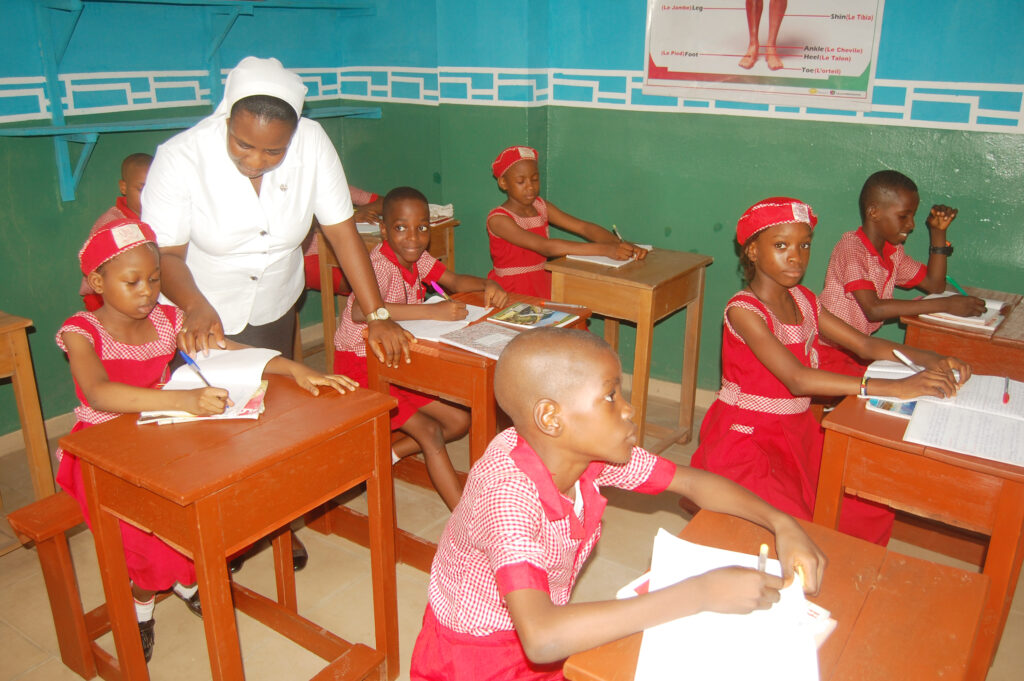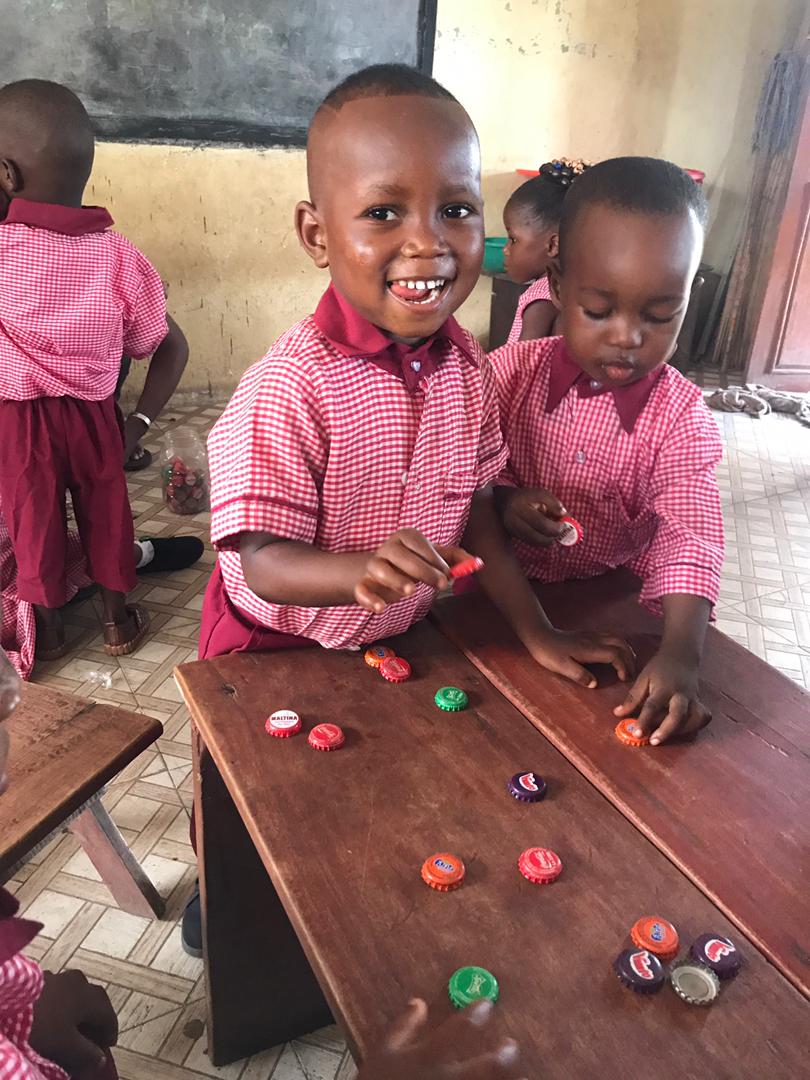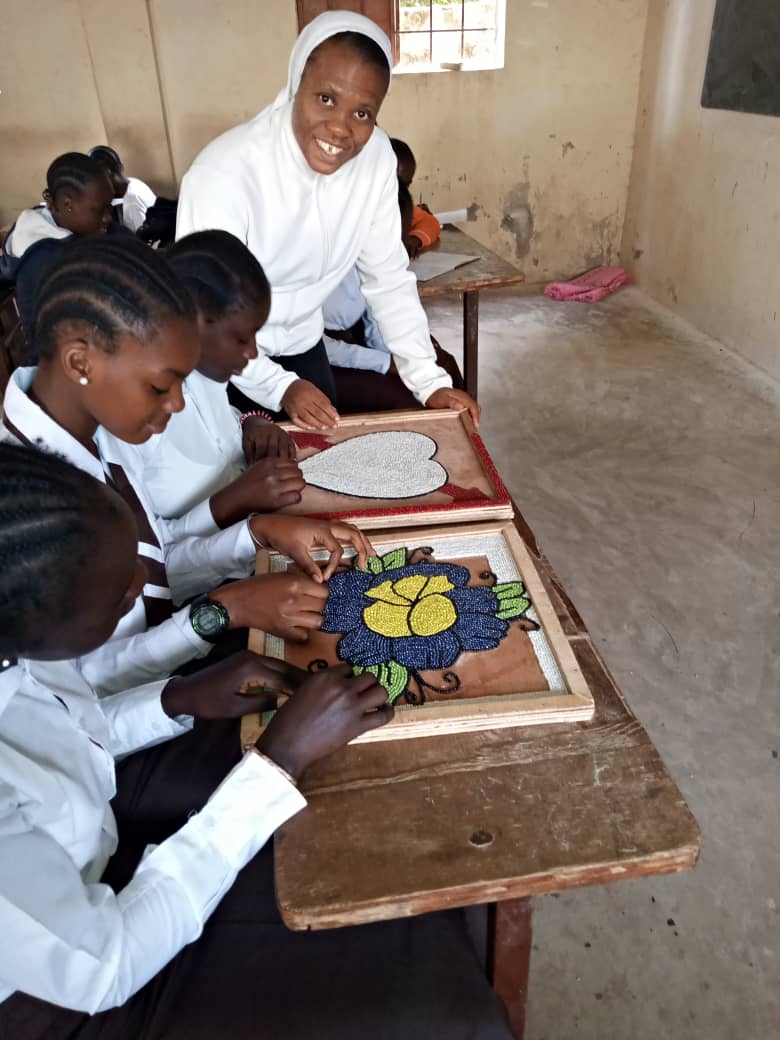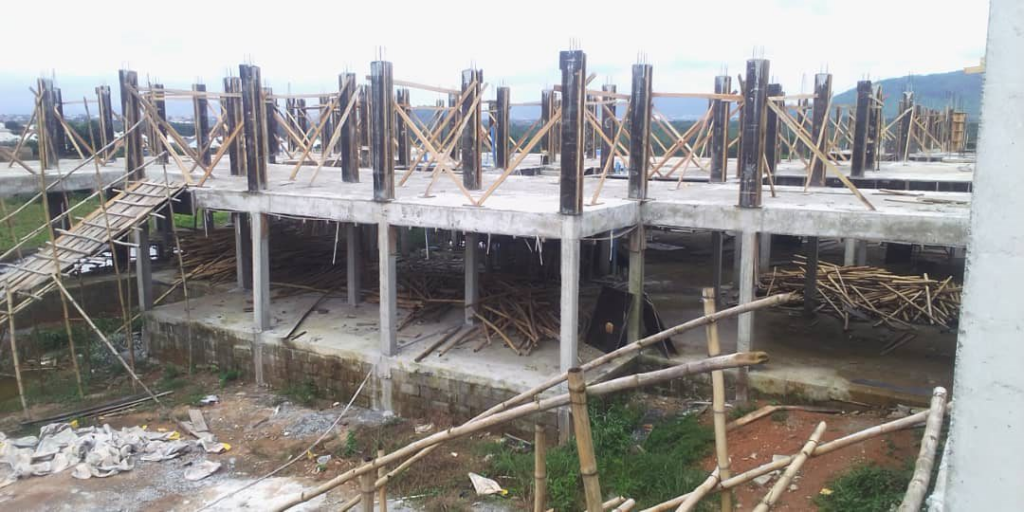Nigeria
Education, Human Trafficking, War Victims
$100,000 Goal
Summary of the Situation
Violent conflict is pervasive throughout Nigeria. Warring tribes make everyday life activities difficult and often dangerous for children and adults in both rural and urban areas. This cycle of ongoing violence has endured for many years. Breaking this cycle and a commitment to valuing diversity, the humanity of others, and working for peace is desperately needed.
The Archdiocese of Abuja invited the School Sisters of Notre Dame to build and staff the SHALOM School, a school that would be dedicated to promoting these values as an integral part of a transformative educational experience for children from ages 2-12 years old. The Sisters accepted this invitation and began to build the school in Kagini. The funding promised for the school has not materialized. The sisters are committed to completing the school building, offering the SHALOM curriculum to the children there, and providing a hope-filled future for the people of Kagini and Abuja.
How will the funds be used?
Funds will be used to complete the building of the school so that the sisters can begin to implement the SHALOM curriculum and build a community of young people committed to nonviolence and peace-building.
The Sisters’s Response
Completing the building and opening the SHALOM School is the response of the School Sisters of Notre Dame to the invitation from the Abuja Archdiocese. Kagini, a small village on the outskirts of Abuja, is a region experiencing divisions and unrest in a country where violent conflict is pervasive.
The school curriculum would respond to the urgent unmet needs, especially the formation of a new generation committed to values of justice, peace, the integrity of creation, dialogue, and reconciliation. SHALOM School would offer students a quality education and opportunities to build trust and positive cross-tribal relationships. SHALOM School is committed to building the self-esteem of each student, and teaching students to work together to bring about peace, non/violence, and respect for each other’s beliefs, backgrounds, and social status. SHALOM staff will build bridges and teach students to value diversity, especially living together in peace among Christians, Muslims, and other denominations. They will offer students a holistic and transformative education that will serve them well in Abuja and beyond.
Systemic Impact
Violence, war, tribalism, poverty, lack of access to education




